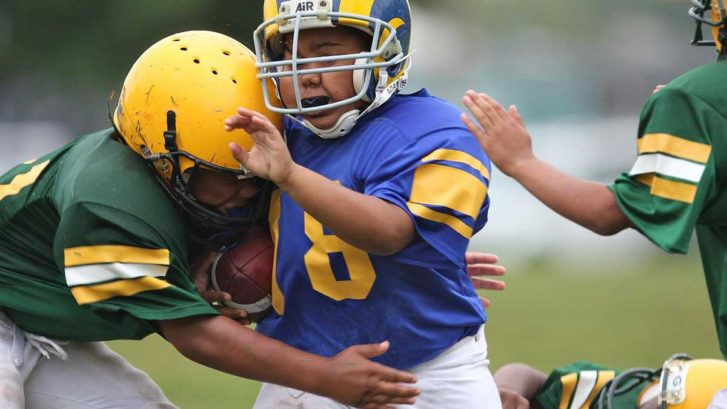Concussions Not the Only Risk To Athletes and Veterans
In recent years, researchers and the athletes themselves have revealed that the constant hits suffered by professional football players result in a neurodegenerative disease known as chronic traumatic encephalopathy (CTE). Further research has shown that CTE has also been detected in other athletes and military veterans who have been exposed to concussive blasts during deployment.
This syndrome causes memory loss, rages, and mood swings similar to the symptoms seen in Alzheimer’s and other dementia-type diseases. This has led to warnings about children under 14 playing tackle football.
As more and more retired football players came forward with the news that they were experiencing these symptoms, the media reports resulted in attention to the concussions they had suffered during their careers.
But a new study has confirmed the growing suspicion that concussions alone were not responsible for the onset of the disease. It now appears that hits to the head are the primary cause of CTE. Football players are not alone in being subject to CTE. Other victims can include boxers, practioners of mixed martial arts (MMA), domestic violence victims, and the homeless.
The study at Boston University analyzed the brains of deceased teenagers who had suffered head injuries, as well as creating head trauma in mice, to confirm their findings. The study examined the brains of four teenagers who died soon after suffering sports-related head injuries.
“The concussion is really irrelevant for triggering CTE,” Dr. Lee Goldstein, an associate professor at Boston University School of Medicine and College of engineering, told The Washington Post last week. Goldstein was a lead author of the study. “It’s really the hit that counts.”
“[The results] show that CTE is relevant even to teenagers, and that the onset of CTE can occur soon after injury,” Goldstein told Time Magazine. He called the findings “surprising and alarming.”
“The same brain pathology that we observed in teenagers after head injury was also present in head-injured mice. We were surprised that the brain pathology was unrelated to signs of concussion, including altered arousal and impaired balance, among others. Our findings provide strong causal evidence linking head impact to TBI [traumatic brain injury] and early CTE, independent of concussion,” he told The Post.
“The results may explain why approximately 20 percent of athletes with CTE never suffered a diagnosed concussion.”
This is important because Goldstein explains that when a player takes a hit, if he is not diagnosed as having a concussion, he’s sent back into the game, and may suffer subsequent hits that can have serious consequences.
“There are many players who are hit, who are hurt and who aren’t getting help because it’s clear that they’re not at the level of concussion,” he told The Post. “Their brains are not in good shape and they go on to the next hit and the next one.”
What does this mean to you? If you have children considering playing contact sports, especially football, you may want to investigate this issue further. Your concierge primary care doctors at MD 2.0 Jupiter in Jupiter, Florida, can help you sort through the confusion surrounding CTE. And be sure to see us if you or your children experience a head injury, whether sports-related or not.

